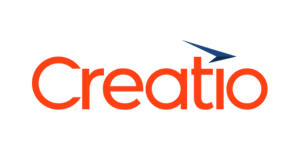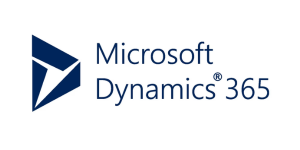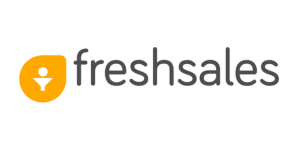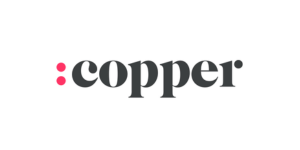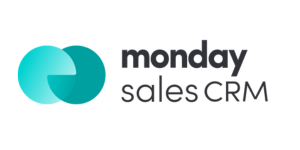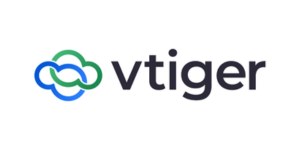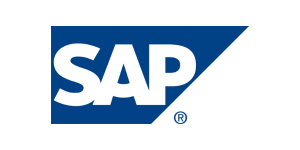Take your sales and customer management to the next level with Salesforce alternatives
CRM for Salesforce Alternative
Salesforce alternatives are customer relationship management (CRM) solutions designed to offer businesses a flexible, cost-effective, and sometimes more straightforward option for managing customer interactions, sales processes, and business operations. These alternatives vary in features, with many offering specialized tools tailored to specific industries, smaller teams, or businesses with unique needs.
Unlike Salesforce, which is known for its extensive features and complexity, alternatives often prioritize ease of use, affordability, and customization, making them attractive to businesses that want powerful CRM capabilities without the steep learning curve or high costs.

Features specific to Salesforce alternatives
- Intuitive interface
Many Salesforce alternatives prioritize simplicity and user-friendliness, offering a clean, easy-to-navigate interface that helps users quickly adapt without extensive training.
- Specialized industry solutions
Some Salesforce alternatives offer tailored features for specific industries, such as retail, healthcare, or real estate, providing more focused tools that better meet the unique needs of different sectors.
- Advanced reporting and analytics
Alternatives to Salesforce provide easy-to-use, customizable reporting tools that allow businesses to generate real-time insights. These tools help teams make data-driven decisions without needing complex setups.
- Collaboration and communication tools
Several alternatives include built-in collaboration features, such as team messaging, document sharing, and task management, to streamline communication and keep teams aligned on sales goals and customer relationships.
Best Salesforce Alternatives
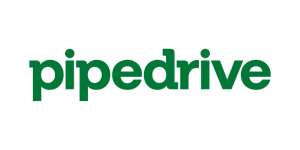
Pipedrive is a sales-centric CRM designed to accelerate the sales cycle and streamline your sales process. Unlike Salesforce, Pipedrive is known for its intuitive interface, allowing users to learn and navigate the platform easily.
4.3
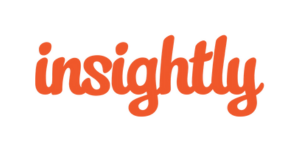
If you're looking for a visually appealing yet powerful CRM, Insightly could be a great fit. This cloud-based solution is designed for mid-sized businesses seeking to integrate their marketing and sales efforts seamlessly.
4.2
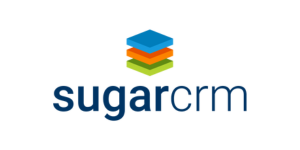
SugarCRM offers an intuitive, easy-to-navigate interface with extensive customization capabilities, making it both user-friendly and highly adaptable. Additionally, it is fully compatible with all devices, including mobile, ensuring accessibility and efficiency on the go.
3.9
Why look for CRM alternatives to Salesforce?
When considering alternatives to Salesforce, it's important to evaluate the key areas where other CRM systems might offer advantages. While Salesforce is widely regarded as an excellent CRM solution, with its seamless third-party integrations, powerful features for business growth, and intuitive dashboards for tracking your sales pipeline, there are a few aspects where competitors might perform better.
Reporting
Salesforce offers solid reporting capabilities, but some users find the reports a bit complicated and hard to interpret. Other CRM platforms may provide simpler, more straightforward reporting tools that are quicker to adapt to your sales cycle and easier to understand.
Customization
Customizing your CRM to fit your business needs is crucial for effective sales management. Salesforce, however, has some limitations in this area. Its customization options are fewer compared to other platforms, and its customization tools can be tricky to use. Furthermore, any advanced customization tends to come with a high price tag.
Customer Support
Salesforce does offer solid customer support, but it’s not without its flaws. For one, their support services can be expensive, and free assistance is only available for critical issues affecting all users. If you want in-depth help, Salesforce provides additional resources like Salesforce University, but these come at an extra cost.
What should you consider in a Salesforce alternative?
When selecting a Salesforce alternative that matches both technological capabilities and business value, there are several key factors to keep in mind:
- Functional scope: Make sure the CRM solution provides all the essential features your business needs, such as sales pipeline management, marketing automation, contact management, and email marketing tools. Avoid platforms that offer disconnected CRM features, as paying for capabilities you won’t use can be both costly and inefficient.
- Customization flexibility: Choose a CRM that is not only adaptable to your business needs but also easy for non-technical users to customize without relying heavily on IT support.
- User-friendliness: Opt for a CRM with a clean, intuitive interface that helps your team quickly adapt and become productive. A well-designed system encourages employees to fully utilize CRM's potential.
- Integration capabilities: Since a CRM is just one component of your IT infrastructure, it’s essential that the solution easily integrates with other systems, such as marketing tools or accounting software. Ensure that integrations are simple to implement without requiring extensive development.
- Deployment options: While most CRM solutions are cloud-based, some businesses may prefer on-premises deployment due to security concerns. Choose a solution that meets your specific deployment needs.
- Scalability: Look for a CRM that can grow alongside your business. You want to avoid switching systems as your organization expands, which can be disruptive and costly.
- Post-sales support: Adequate training resources are crucial for ensuring your team gets the most out of the CRM. Additionally, responsive customer support is important for troubleshooting issues and continuously improving the system’s performance.
- Pricing: Consider the full cost of ownership, including the initial license fees, ongoing maintenance, and any hidden costs. Make sure the pricing structure fits your budget and offers good value for the features you need.
Types of Alternatives to Salesforce
There are two main categories of alternatives to Salesforce: traditional CRM systems and sales-focused pipeline management tools.
Traditional CRM Systems:
CRM, or customer relationship management, is all about managing interactions with current and potential customers. The goal is to enhance business relationships and support growth. Traditional CRM systems are typically used across multiple departments, such as marketing, sales, and RevOps, and are often applied to specific channels, usually in a transactional way.
Sales Automation Tools:
While sales automation tools may include some CRM features, their primary focus is on automating the sales process. For example, platforms like Salesloft position themselves as revenue workflow solutions. These tools are specifically designed for sales teams and can cover various functions like CRM, email marketing, and lead generation. Each tool brings its unique value, so it’s essential to choose one based on the features that best fit your business needs.
Costs of Salesforce Alternatives
When choosing a Salesforce alternative, it's important to understand the full cost structure. Most platforms operate on a subscription basis, with fees varying depending on features, the number of users, and customization needs. Be sure to consider not only the initial subscription costs but also any additional charges for setup, integrations, or premium features.
In addition to basic fees, businesses may face setup costs for data migration, customization, and integration with existing systems. Some alternatives also charge extra for additional features like advanced reporting or analytics. Keep in mind that integration with other tools might require third-party developers or add-ons, increasing costs.
Finally, don’t forget about ongoing expenses like training fees and customer support costs. Many platforms offer free training and support, but more comprehensive resources or priority services can come with extra fees. Evaluating all these potential costs will help you choose a solution that fits your budget and business needs.
FAQs
What are the main benefits of switching to a Salesforce alternative?
Switching to a Salesforce alternative can offer lower costs, simpler interfaces, and more flexible customization options. These alternatives are often easier to use, provide tailored solutions for specific industries, and deliver better scalability for smaller businesses or teams.
Are Salesforce alternatives as feature-rich as Salesforce?
While many Salesforce alternatives may not have the same level of complexity and breadth as Salesforce, many still offer robust features such as CRM tools, automation, analytics, and integrations.
How do I choose the right Salesforce alternative for my business?
Choosing the right alternative depends on your business size, industry, and specific CRM needs. Look for other options that offer the features you need, such as sales pipeline management, automation, and reporting.
Consider factors like ease of use, customization options, pricing, and integration capabilities with other tools you already use. Additionally, reading reviews and taking advantage of free trials can help you make an informed decision.
Are Salesforce alternatives suitable for large enterprises?
Yes, many Salesforce alternatives are scalable and can support large enterprises, though they may be better suited for businesses that need a more flexible or specialized solution.
While large organizations often prefer Salesforce due to its extensive features, some alternatives can cater to enterprise-level needs.
Other CRM Industries
Higher Education
Attract, sustain, and serve your students with CRM for higher education
Construction
Modernize your business and deliver projects faster with a CRM for construction.
Consulting
Conduct business from your pocket, with a CRM for consultants
Manufacturing
Improve the planning, production scheduling, and communication with a manufacturing CRM.
Real Estate
Manage properties, buyers, and sellers on a unified platform with CRM for real estate.
eCommerce
Improve customer relationships and reach new markets with CRM for eCommerce.
Small Business
CRM is an inexpensive software solution to scale your business.
SaaS Companies
Reduce churn and attract more customers with a CRM for SaaS.
Nonprofits
Raise more money, motivate volunteers, and grow strategically with CRM for nonprofits.
Retail
Add a personal touch to every shopping experience with CRM for retail.
Insurance
Reduce risk and increase profits with CRM for Insurance.
